Native to Africa, zebras are distinctive single-hoofed mammals that live in herds. There are several species of zebra found in the wild and each zebra's stripes is completely unique.
Here is our expert guide to zebras, looking at key species facts, where they live in the wild and when they migrate.
What are zebras
Zebras are odd-toed ungulates and thus belong to the Perissodactyla order. There are three extant families within this order: Equidae (horses, asses, and zebras), Rhinocerotidae (rhinos), and Tapiridae (tapirs).
Species of zebra
There are three species of zebra found in the wild:
1
Grevy’s zebra (Equus grevyi)
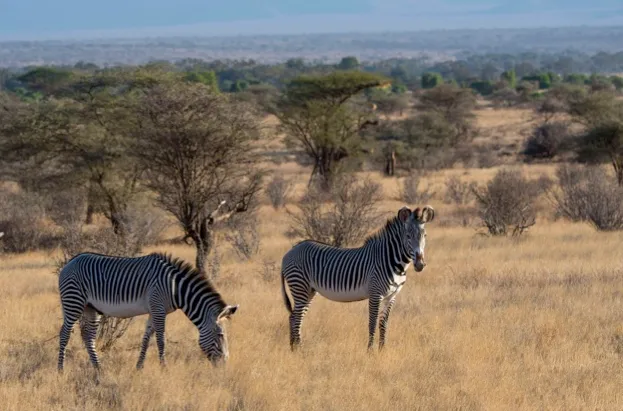
2
Mountain zebra (E. zebra)
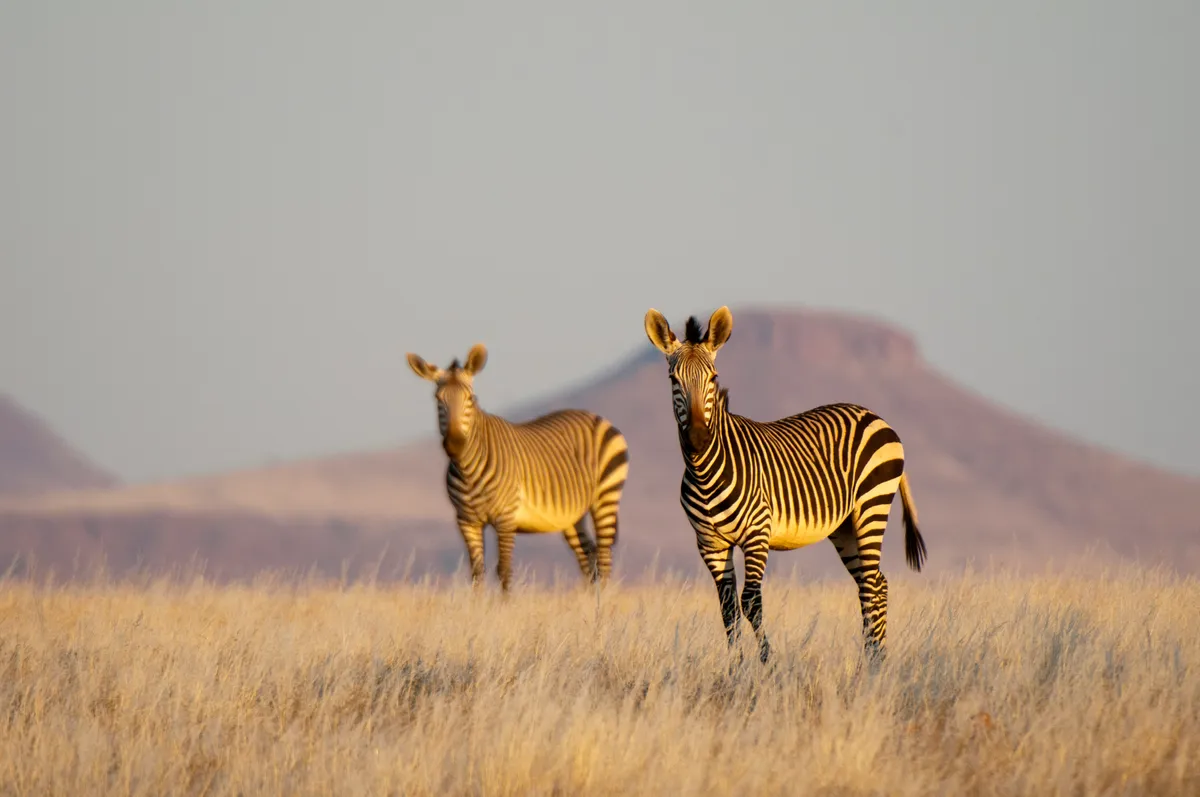
3
Plains zebra (E. quagga)
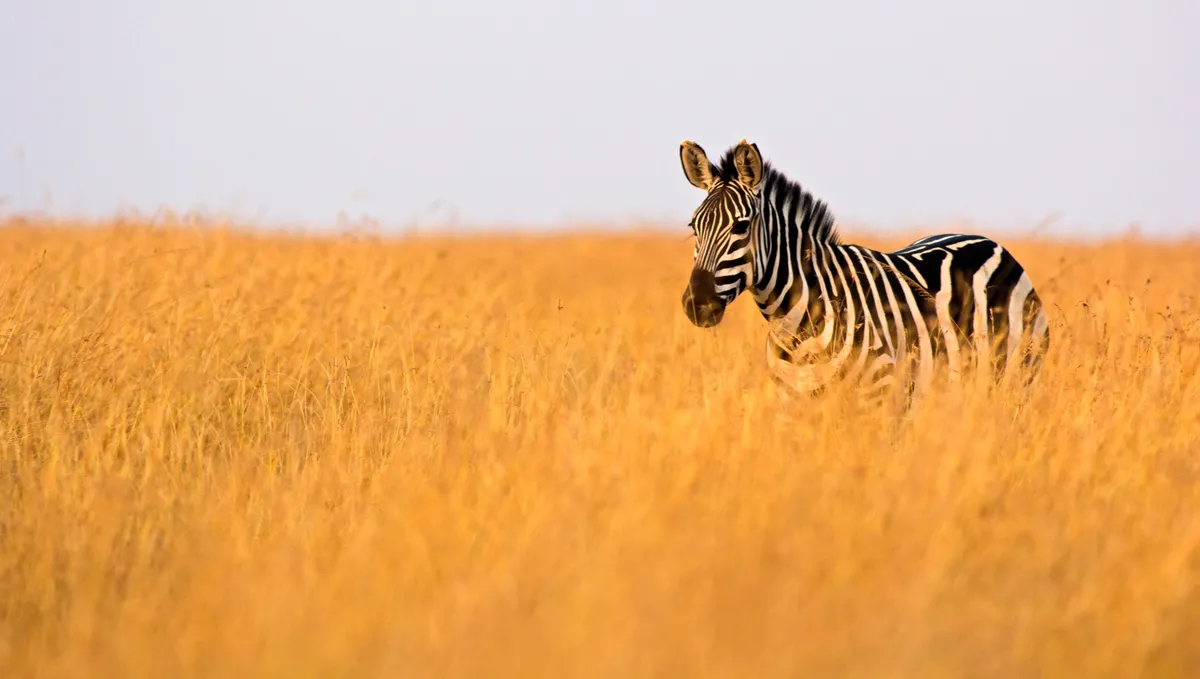
The plain zebra is by far the most common. The mountain zebra has 2 subspecies, and plains has 6 (plus a seventh extinct subspecies). However a DNA study in 2018 argues against the subspecies structure in plains zebra.
Where do zebras live?
Zebras are widespread across vast areas of southern and eastern Africa, where they live in their preferred habitat of treeless grasslands and savannah woodlands. However, their habitat is shrinking, and they're already extinct in two of the countries to which they're native (Lesotho and Burundi).
Zebras don't live in deserts, wetlands or rainforests, which may make them vulnerable to climate change.
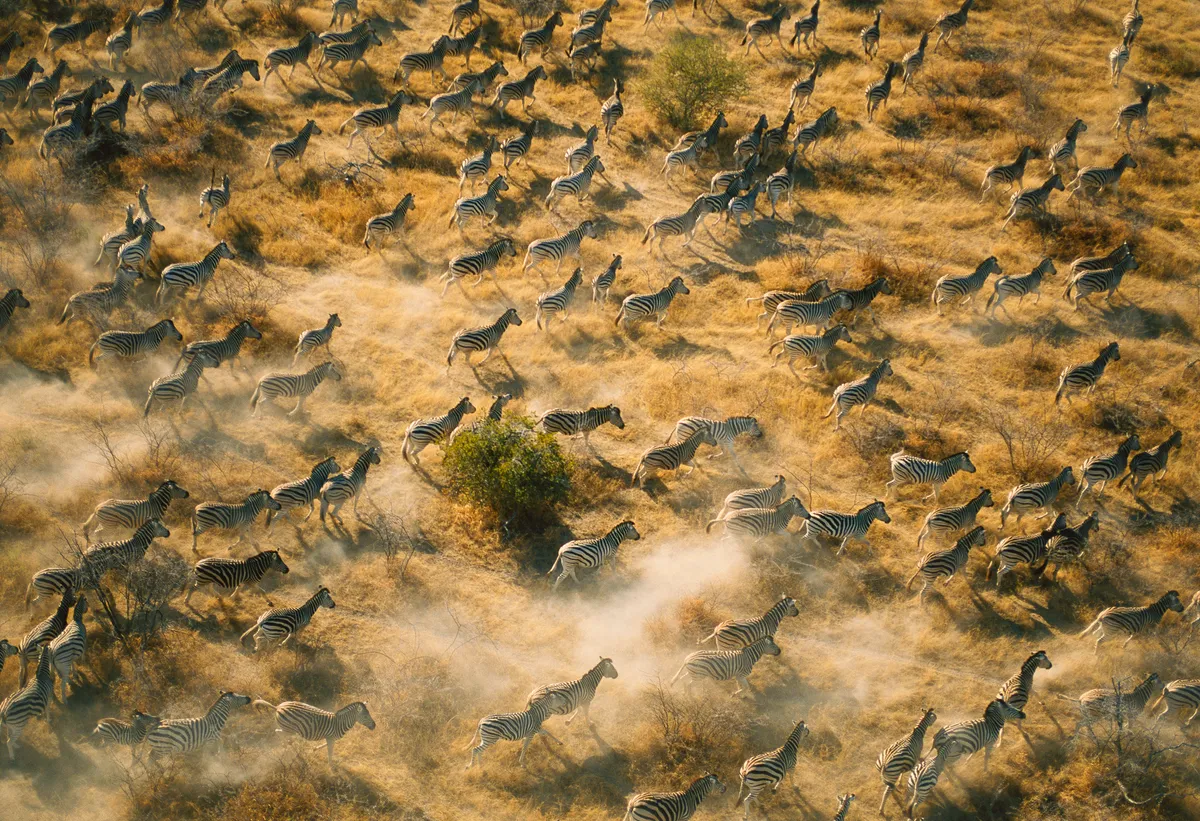
Is a zebra a horse?
Zebras are closely related to horses but they're not the same species. They're both in the Equidae family and they can even breed with each other.
The offspring (zebroids) have different names dependent on the parents. A male zebra and female horse produces a zorse, and a female zebra and male horse produces hebra. Zebras can also breed with donkeys, to produce a zedonk.
Offspring of all crossovers are sterile, as zebras, horses and donkeys have different numbers of chromosomes.
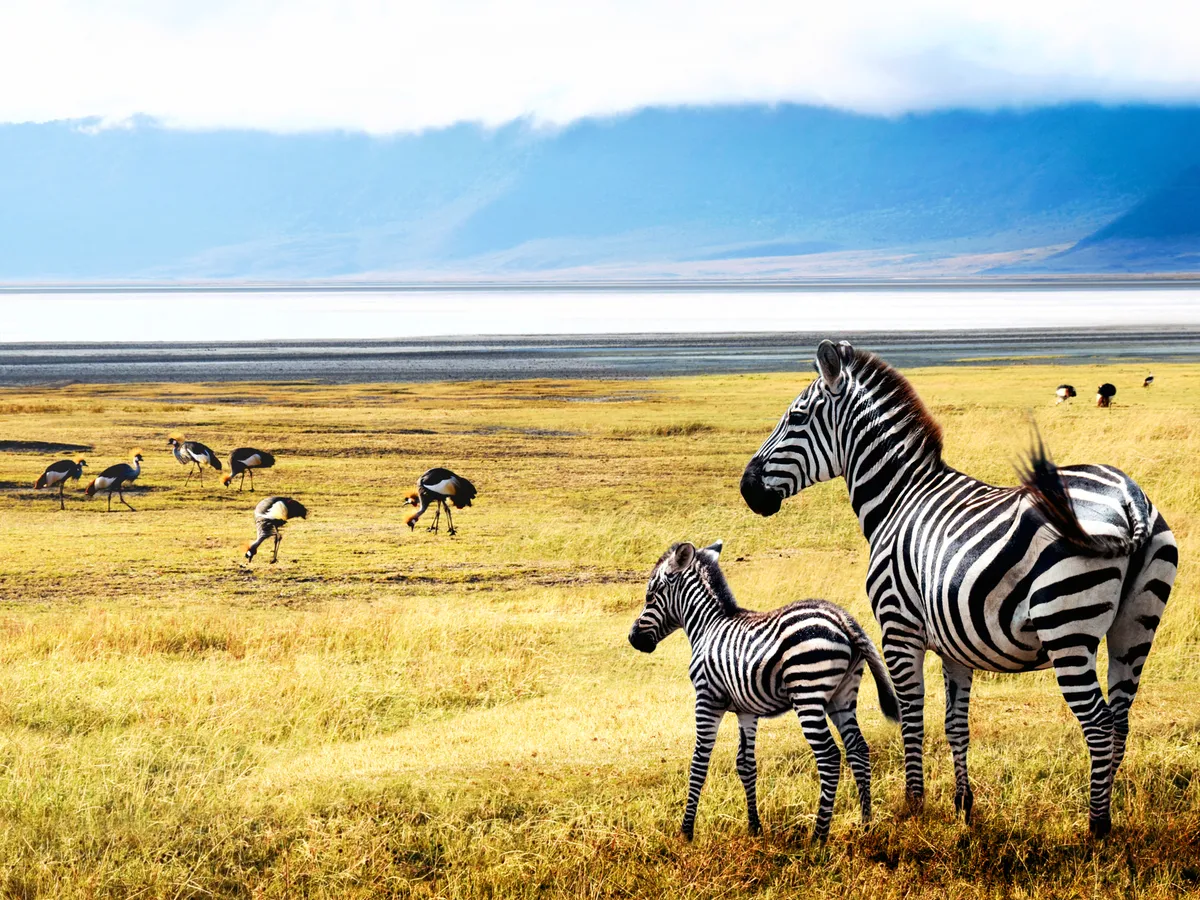
Can you ride a zebra?
It would be possible to ride a zebra, but definitely not recommended. Riding a zebra wouldn't be practical simply because they're smaller than horses and unlikely to be able to support the weight of an adult human for an extended period of time without getting injured, especially as they haven't been selectively bred for this trait like horses have.
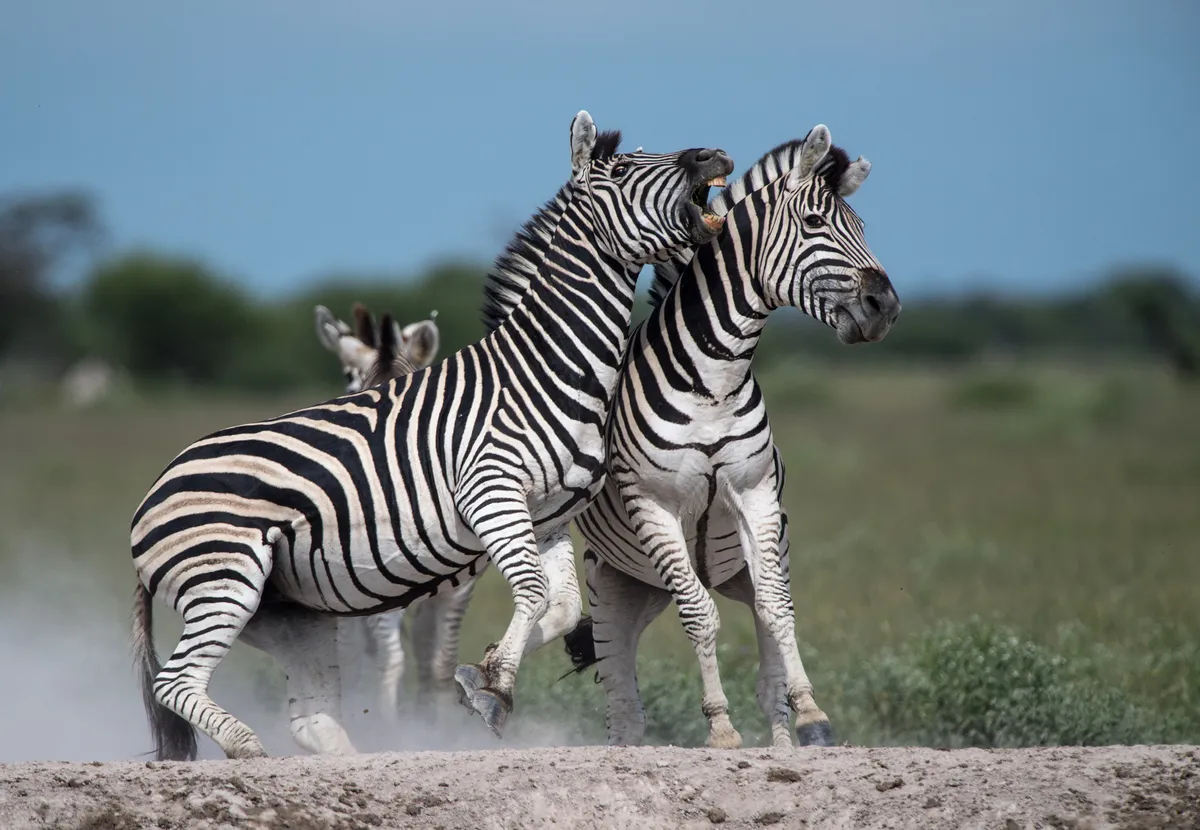
Zebras also have very different temperaments to horses. They're far more aggressive and a lot more dangerous.
Zebras have been known to kick each other to death, they will viciously bite any human that comes too close, and there are even many accounts of zebras killing lions.
Zebras have been trained to pull carriages successfully in the past (Lord Rothschild used to drive his zebra-drawn carriage through London), but obviously it's not something that would be deemed acceptable by most people in the modern world.
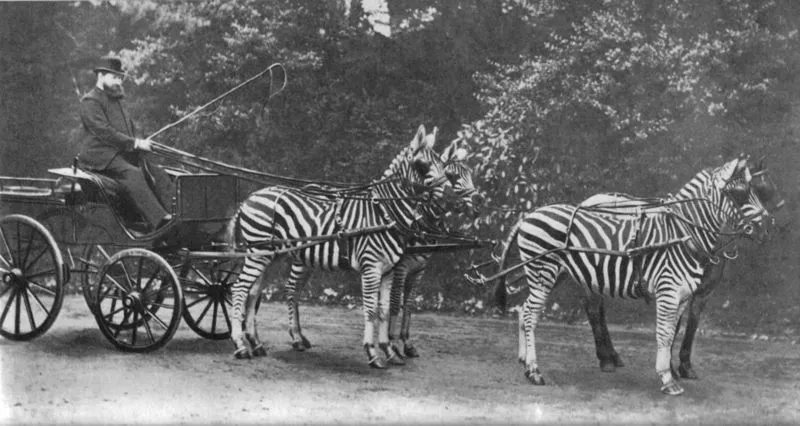
In Ancient Rome, Grevy’s zebra were trained to pull chariots at Roman circuses under the alias ‘hippotigris’ (‘horse-tiger’).
Are zebras endangered?
The Grevy's zebra is the rarest of the three species and is classified as Endangered on the IUCN Red List, followed by the mountain zebra which is classified as Vulnerable. On a subspecies level, the Hartmann's mountain zebra is listed as Vulnerable and the Cape mountain zebra is listed as Least Concern.
The overall classification for the plains zebra species is Near Threatened.
What sound does a zebra make?
Zebras make a range of noises, some of which are the same as horses while others are unique. Like horses, zebras will snort when excited and nicker (creating a 'whuffle' kind of sound by blowing air through their nose and lips) when greeting each other.
But zebras also bray in a similar way to donkeys and mules, but horses don't. A zebra bray is wider ranging than a donkey's, starting as a low growl and rising to a high squeal not unlike a pig. Braying like this can be heard over great distances and is used to find potential mates.
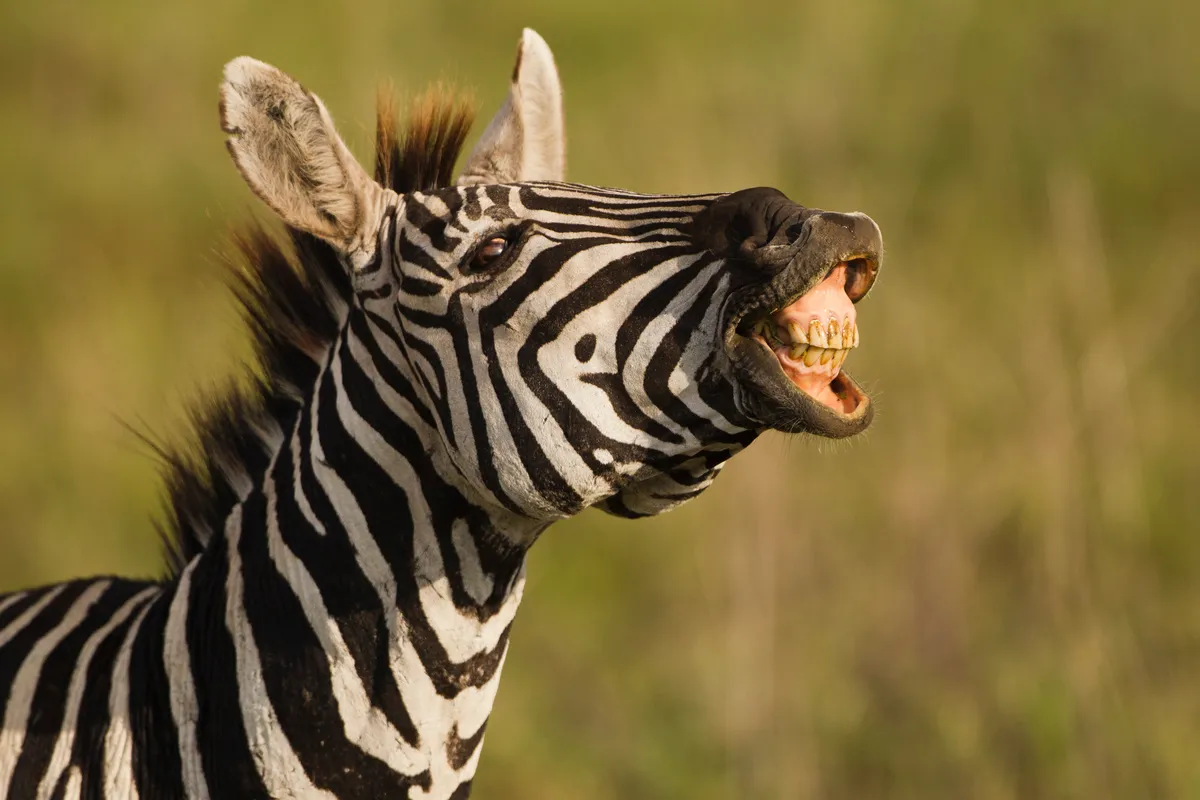
Finally, zebras also have a surprisingly high-pitched bark. It sounds more like a noise you'd expect from a wild dog rather than a member of the horse family, but zebras use it to find each other in a herd.
How fast can a zebra run?
Zebras are very speedy animals, and can reach speeds of up to 65kph when galloping across the plains. This is just fast enough to outpace predators such as lions. Foals can run with the herd within a few hours of birth.
How do zebras keep cool in the sun?
A zebra’s stripy coat is thought to disperse more than 70 per cent of incoming heat, preventing the animal from overheating in the African sun. This is because air moves at different speeds over light-absorbing black stripes and light-reflecting white stripes, so the zebra creates its own cooling air currents.
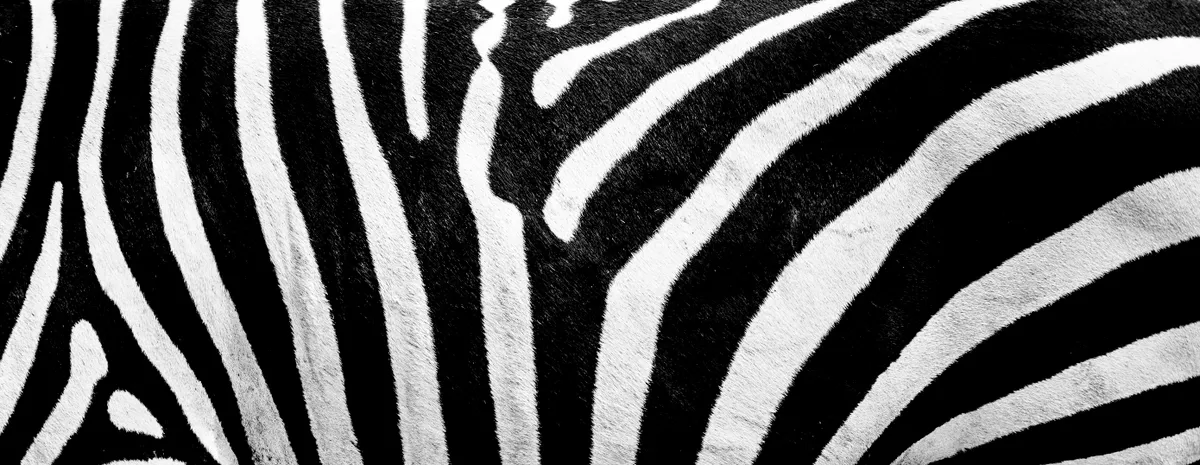
Why do zebras have stripes?
In addition to keeping zebras cool, it's thought that a zebra's stripes also serve to help camouflage the animal in long grass, and distract predators. While that might seem unlikely when we look at them, you've got to remember that lions are colour blind, and a herd of stripy running zebras will very confusing if you see everything in black and white.
Recent research also shows that a zebra's stripes may have evolved to keep biting insects at bay - the monochrome pattern seems to throw off the visual systems of flies.
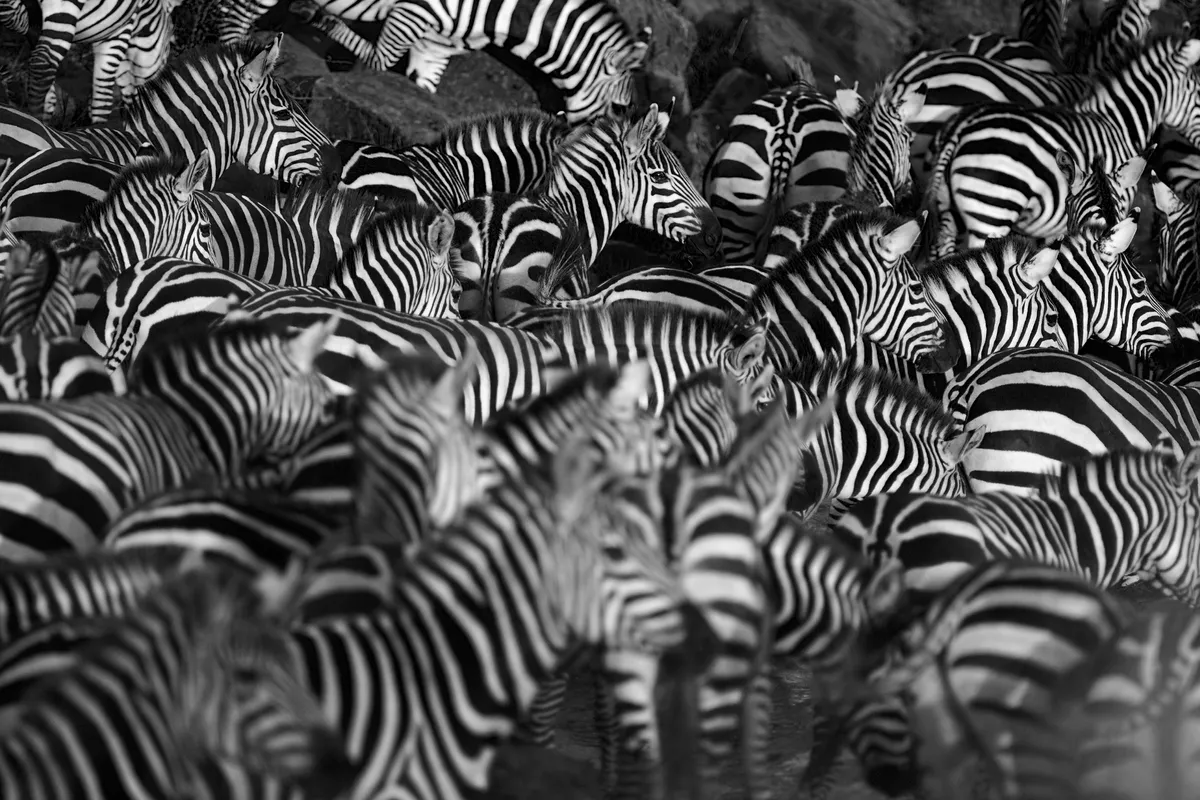
Are zebras white with black stripes?
No, in fact zebras are black with white stripes!
Some zebras don't have stripes on their bellies, in which case the fur is white, so we used to think that zebras were white with black stripes. But recent research looking at embryological evidence has shown that a zebra's underlying colour is actually black, and it's the white that's added on top.
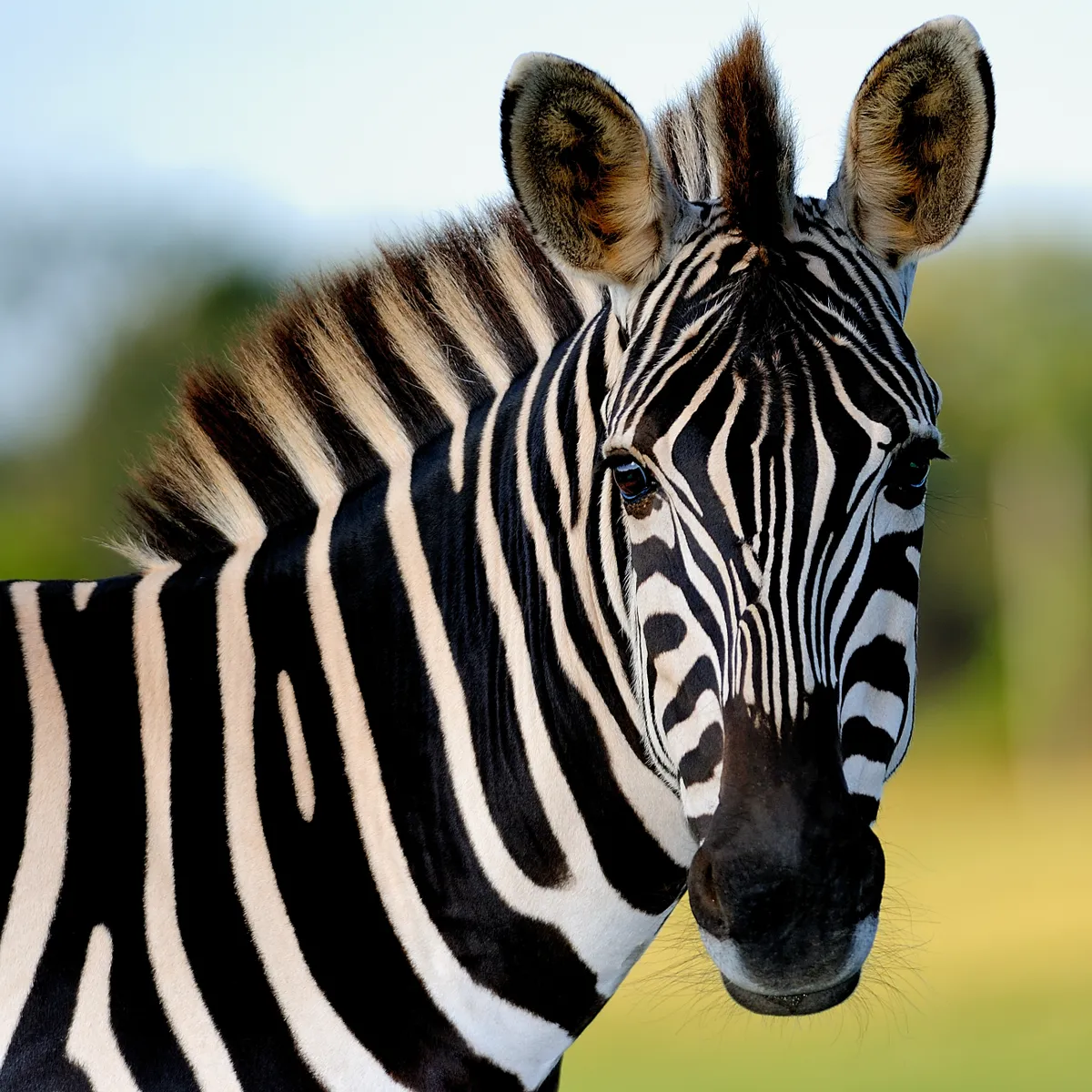
What is a group of zebras called?
A dazzle of zebras is the most common collective noun, named for the motion dazzle effect created by a group of running zebras.
A group of zebras can also be called a herd of zebras or a zeal of zebras, but those aren't quite as much fun.
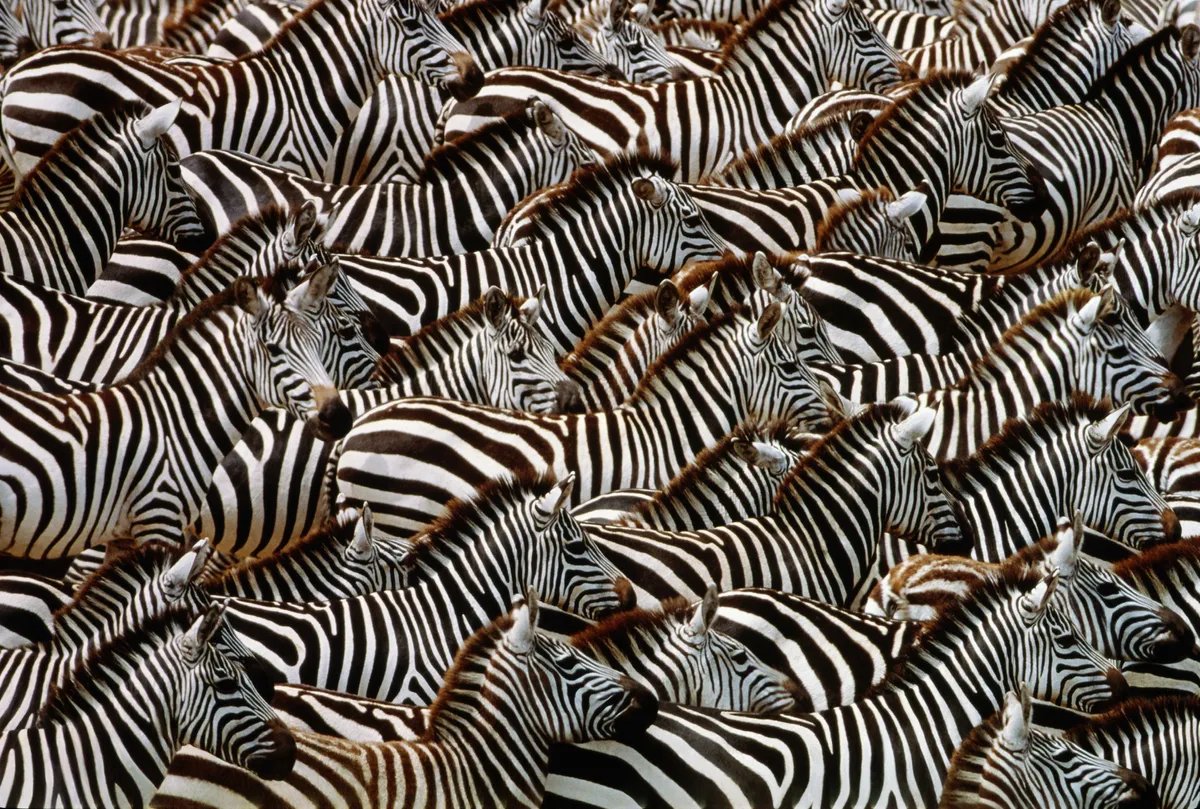
Are zebras sociable?
While Grevy zebra society tends to be fairly open, that of plains and mountain zebras is more tight-knit, with the animals living in harems of up to six breeding females and their young, with a dominant male. Each female has a place in the hierarchy.
These groups are so close that if a predator injures one individual, fellow members will circle it and attempt to scare the intruder away with their teeth and hooves.
Do zebras sleep on their feet?
Like horses, zebras sleep standing up, and usually only when in the safety of a group.
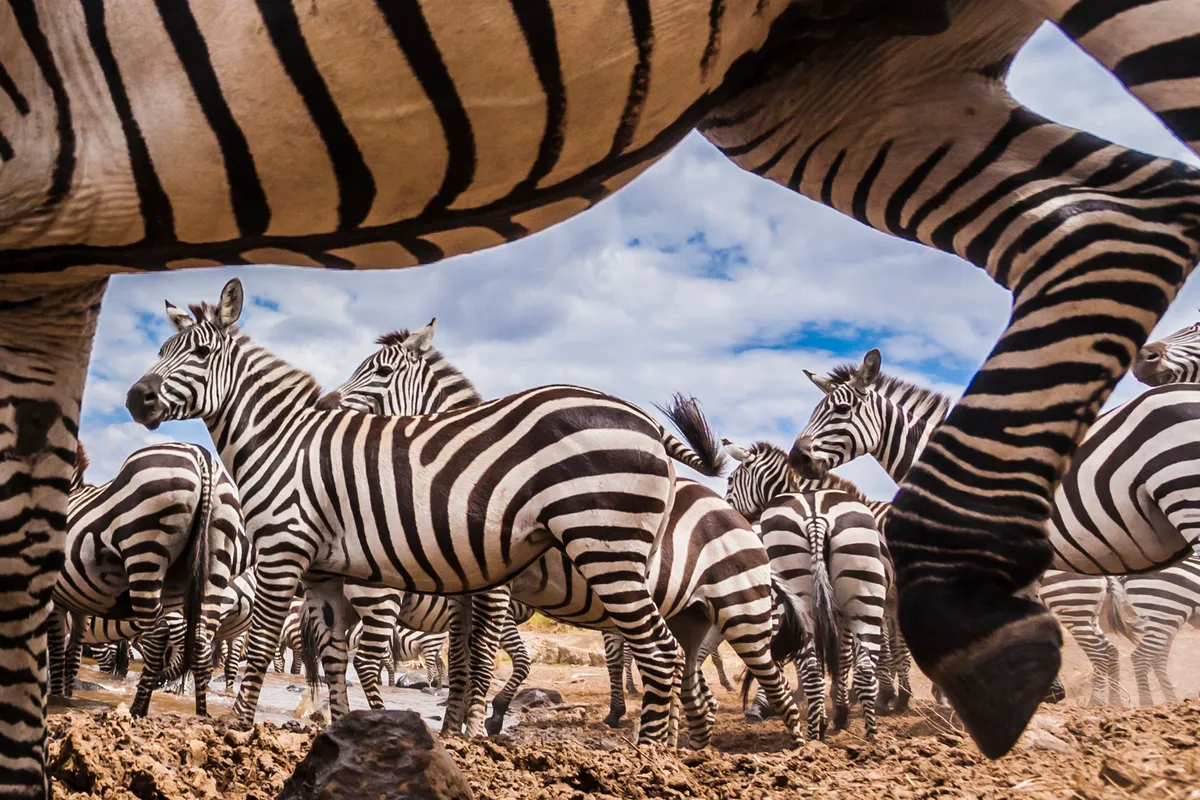
How far do zebras migrate?
One of the most extraordinary phenomena in the natural world is the annual 1,800-mile migration of millions of zebra, blue wildebeest and other antelope between the Serengeti in Tanzania and Kenya’s Masai Mara in a constant search of food and water.
See how many species visit this zebra carcass
PhD student James Steven investigated human–elephant conflict on the boundary of Makgadikgadi Pans National Park, Botswana as part of his studies.
“I’d been told that there was a fresh zebra carcass by the river, so I set up my camera-trap and was lucky enough to capture footage of a brown hyena (above), spotted hyena, leopard, hippo and genet", said Steven.
Main image: Plains zebra are the most commonly found species of zebra. © Getty